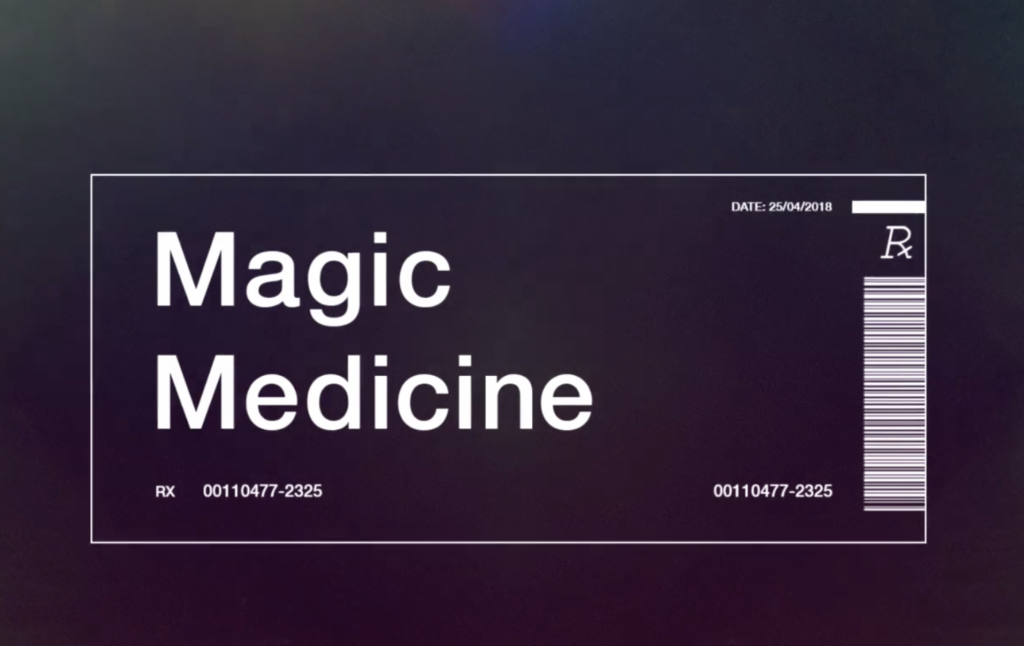
This review article explores the overlaps between the diagnoses of Post-Traumatic Stress Disorder (PTSD) and Major Depressive Disorder (MDD). It discusses whether similarities between the conditions (causes and symptoms) mean that there could be similarities in treatment approaches, specifically psilocybin-assisted psychotherapy and MDMA-assisted psychotherapy. Both drug-assisted psychotherapies have ‘breakthrough therapy’ designation from the FDA, giving them priority in the regulatory drug development process. Both have safety data and evidence for potential efficacy is in preliminary stages.
Both drugs are used to facilitate psychological change. Dosing sessions occur in a comfortable, supportive setting with a therapist. There are pre-dose preparation sessions and post-dose integration sessions.
The paper discusses how trauma exposure may contribute to psychopathology, the overlap between PTSD and MDD, relevant neurobiological changes, treatment approaches, and the transdiagnostic potential of drug-assisted psychotherapy.
We will aim to summarise an extensive review into a brief blog – inevitably aspects are missed – and we encourage anyone interested to read the full paper.

The Magic Medicine documentary is a good introduction to psychedelic-assisted psychotherapy.
Results
Trauma and psychopathology
Exposure to traumatic events such as serious accidents, physical or sexual abuse is a risk factor for developing psychopathology. Some may develop longer-term illness, such as PTSD (post-traumatic stress disorder) and MDD (major depressive disorder).
There are numerous overlaps between the diagnoses of PTSD and MDD:
- Overlap in symptoms: such as loss of ability to experience pleasure, concentration difficulties, sleep disturbance, negative thoughts (e.g. self-blame, feelings of worthlessness), thoughts of death or suicidal thoughts
- Overlap in people diagnosed: around 50% of those with PTSD also had MDD, and a history of MDD is predictive of developing PTSD following trauma exposure
- Evidence of worse outcomes: co-occurrence of PTSD and MDD is associated with greater functional impairment and increased suicidal behaviours.
Brain structures implicated in PTSD and MDD also overlap. The authors discuss the neurobiology in some detail. We will summarise it briefly.
The amygdala and hippocampus are both important. The amygdala is involved in processing emotional information and in generation of the fear response. It’s activity is increased in PTSD and MDD. It may contribute to the heightened startle response seen in PTSD and to negative emotional processing in MDD. The hippocampus is crucial to memory. In both conditions, it’s volume can be reduced. This may contribute to trauma-related memory loss as well as encoding the context of difficult memories which contribute to increased fear or negative emotions.
The hypothalamus is important due to its role in hormonal regulation. In people who have experienced childhood adversity and other traumas, there are differences in the levels of cortisol (a key hormone). These are also seen in patients experiencing depressive episodes. Cortisol levels seem to be dysregulated in people with PTSD, and high levels of cortisol and other stress hormones may contribute to hippocampal shrinking.
Thus, the authors suggest that “PTSD and MDD in response to trauma may be best represented as two distinct, yet strongly related constructs”. Considering links between these conditions is important, because it pushes us to consider if treatments for PTSD may be effective for MDD or vice-versa.
Current treatment
Current pharmacological treatments for PTSD have partial efficacy. 60% of patients respond, but only 20-30% achieve remission. Psychological interventions such as trauma-focused, exposure based psychotherapies are first-line for PTSD. These are effective in around half of patients, but are poorly tolerated – drop-out rates of 25-30% are reported.
For MDD, roughly 50-60% of people improve following antidepressant treatment, but a large proportion will relapse. Approximately 1/3 of those diagnosed with MDD will not improve after 2 established treatments, requiring higher doses, augmentation with multiple medications or other approaches.
Enter MDMA-assisted and psilocybin-assisted psychotherapy.
Transdiagnostic Potential of MDMA and Psilocybin-Assisted Psychotherapy
Mood Effects and Emotional Processing
Both psilocybin and MDMA can alter the processing of emotional information.
Psilocybin
Psilocybin may help address negative cognitive biases seen in depression, and increase positive mood states. For instance, psilocybin has been shown to reduce the recognition of negative facial expressions. This may occur by psilocybin impacting on amygdala activity and connectivity. This is relevant for PTSD where psilocybin may inhibit fear responses during the revisiting of traumatic material. As negative thoughts are present in PTSD, psilocybin’s potential to increase positive mood states may also be useful.
MDMA
MDMA also reduces the negative perception of negative stimuli – such as people’s ‘worst’ memories. It also reduces amygdala activation in response to negative facial expressions. Regarding mood effects, MDMA induces a rapid release of serotonin. Like SSRIs, MDMA increases serotonin concentration in the synaptic cleft by blocking its re-uptake. Thus, the pharmacological rationale for why it may be a useful antidepressant is similar to that for SSRIs.
There is some evidence from secondary outcomes in MDMA-assisted psychotherapy clinical trials; reduction in depressive symptoms in patients with alcohol use disorder and reduced depression scores in patients with chronic PTSD.
Social Cognition
MDMA-assisted and psilocybin-assisted psychotherapy are hypothesised to improve therapeutic alliance and emotional empathy. Studies in healthy volunteers have consistently found MDMA to increase openness and feelings of closeness to others.
Psilocybin has also been found to decrease feelings of social exclusion and rejection, which may help to improve the patient-therapist relationship.
This impact on openness and closeness may help in reducing treatment drop-out rates and support the development of a strong therapeutic alliance, which may lead to improved treatment outcomes.

MDMA-assisted and psilocybin-assisted psychotherapy are hypothesised to improve therapeutic alliance and emotional empathy.
Conclusions
Depression can arise as a result of traumatic experiences, particularly in early life. When co-morbid with PTSD – as occurs in around 50% of people with PTSD – treatment needs to be multifaceted.
A potential treatment course could be to administer MDMA-assisted psychotherapy, then offer psilocybin-assisted psychotherapy. The trust-enhancing qualities of MDMA may strengthen the therapeutic alliance first, allowing for a deeper subsequent psilocybin experience. Furthermore, experiencing MDMA first may prepare patients to better tolerate subsequent psilocybin dosing. Additionally, psilocybin-assisted therapy may support treatment of depressive symptoms that persist after MDMA treatment. However, a proof of concept study would be required to directly investigate these theories.

The trust-enhancing qualities of MDMA may strengthen the therapeutic relationship prior to a psilocybin-assisted therapy session, and thereafter aid depressive symptoms.
Strengths and limitations
This review extends an interesting hypothesis which is backed up by current understanding of the neurobiology of these disorders and effects of these drugs.
The limitations are mostly related to the trials reviewed. As the authors highlight, blinding is a problem because of the profound subjective effects elicited by drugs like psilocybin and MDMA. This means people may go into the trial expecting to get better and report an inflated sense of improvement due to the excitement, which will not be replicated when the drugs enter clinical practice. There is then a risk of disappointment, or even self-blame for ‘failing yet another treatment’.
Regarding trial data, a concern is that in the pooled PTSD data (Mithoefer et al., 2019) there are significantly more adverse events reported in the active group. Though BDI depression scores were lower, there were higher levels of self-reported ‘anxiety’, ’low mood’, ‘ruminations’, ‘difficulty concentrating’, and ‘increased irritability’ in the active MDMA groups. Though expected, these reactions suggest caution when considering this drug for people with mood disorders. Levels of suicidal ideation were higher in the active groups than the control groups (ranging from 8% to 48.9% in the active group vs 0 to 14.3% in the control group). However, the active group had higher levels of suicidal ideation pre-drug administration and this did not progress to serious ideation or any suicidal behaviours. Furthermore, whether these findings apply to all patients remains to be seen, as the majority (87%) of participants were white.
Both psilocybin-assisted and MDMA-assisted psychotherapy still need to go through Phase 3 trials, so excitement should be tempered.

Blinding and expectancy are unsolved problems in psychedelic research, and we must remain active in monitoring for adverse events and increased distress in participants receiving these trial treatments.
Implications for practice
With what has been published so far, it is too early to say what the efficacy is, so it is important to read this review as stimulating hypotheses and further research.
To expand on limitations of the current evidence for psilocybin and MDMA, existing pharmacological treatments also come with side effects and adverse events, there is no perfect medicine. However, there is so much hype surrounding psychedelic research, that remembering these drugs are not panaceas is essential. This allows us to remain critical when we review new results and prevents us creating a false sense of expectancy in our patients.
An essential takeaway is just how co-morbid depression and PTSD are, and the high incidence of traumatic experiences in patients with depression. We must remember that patients in psychiatric practice are complex and be prepared to address these complexities – for now with approved treatment approaches, and in future perhaps in novel ways.

An essential takeaway is just how co-morbid depression and PTSD are, and the high incidence of traumatic experiences in patients with depression.
Statement of interests
Anya works with the authors of this review on current studies with psychedelic drugs at King’s College London, but was not involved in this review.
Philip has no conflicts of interest.
Links
Primary paper
Other references
Photo credits
- Photo by Raimond Klavins on Unsplash
- Photo by Filippo Andolfatto on Unsplash
- Photo by Julia Taubitz on Unsplash
- Photo by Priscilla Du Preez on Unsplash
- Photo by The HK Photo Company on Unsplash
- Photo by Bruno Kelzer on Unsplash
